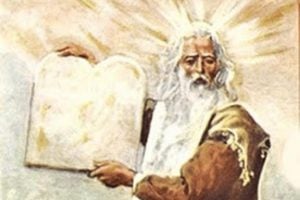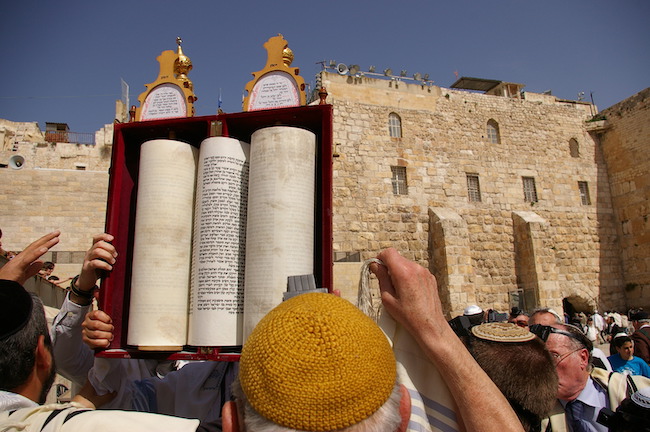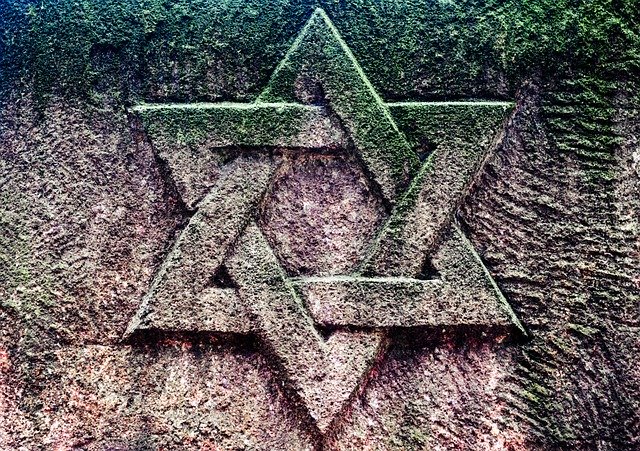Dedicated l’iluy nishmas Matisyahu ben Henoch
![]()

Running Away from Honor
Our reading begins, “And He [G-d] called to Moshe, and Hashem spoke to him from the Tent of Meeting, saying…” [1:1]
The first word of this book, that which identifies the Sefer as “Vayikra,” is traditionally written with an unusally small letter Aleph at the end of the word – as if the word were spelled “VAYIKRa.” This continues a practice that began, our Sages say, with Moshe himself.
It was Moshe who finished with that small Aleph, when Hashem told him to write Vayikra. When G-d called to Bila’am, the prophet whom Balak, King of Moav, hired to curse the Jews, Hashem called to him with “Vayikar,” without the Aleph. Rashi describes “Vayikar” as an off-hand and denigrating call. Moshe was so humble that he did not want to make himself greater than even the evil Bila’am.
If an off-hand Vayikar was enough for Bila’am, then Moshe thought that it was enough for him as well. But our Kabbalah says that G-d gave Moshe the shining beams which radiated from his face – the very symbol of his greatness – in exchange for the ink which Moshe left over in his humility. By playing himself and his importance down, he gained an elevated stature that everyone could see.
There was once a man who (reportedly) put it this way: “It is amazing what you can accomplish if you do not care who gets the credit.” That man was President Harry S. Truman.
Personally, a rabbi advised me a number of years ago to engineer a project in such a way that other people “led” in front, with me working in a supportive role. It turned out that involving many people enabled the program to grow much faster, and it was much more successful than had any one person, much less me, been claiming the credit. I had the opportunity to see this lesson play out in practice.
Anyone who gets involved with any sort of business or project will run into situations where “who gets the credit” becomes a question. What we learn from Moshe is not merely a Kabbalistic insight into how he received beams of light shining from his face, but a real-world, practical lesson into the best way to acquire acclaim: to avoid honor, even when others are trying to grandstand or take credit for work that others have done. As the truth comes out, it will become clear who should bask in the light.
Good Shabbos,
Rabbi Yaakov Menken
![]()
What’s Allowed Vs. What’s Right
See it at JewishAnswers.org
Question: If something is permitted in Jewish law does that mean that its right?
Answer: Not necessarily. The Ramban (Vayikra 19: 2) writes that the Torah itself requires us to make an effort to avoid moral self-destruction caused by over-indulgence in permitted activities. Therefore, even though there are many pleasures and activities that the Torah does not explicitly forbid, the holiness expected of a Jew requires that we nevertheless avoid excess.
Since, however, there is no single set of clear guidelines that is appropriate for everyone in every situation, the real trick is to somehow accurately assess what level of restraint is right for you at any given time.
With best wishes,
Rabbi Boruch Clinton
![]()
Vayikra- Our Souls Are Pure
Rabbi Yakov Bronsteyn
Hear it at TorahMedia.com
Rabbi Bronsteyn is the West Coast Kashrus Administrator for the world renowned Star-K Kosher Certification. Rabbi Bronsteyn is one of the four “Founding Fathers” of the Phoenix Community Kollel.
Recent Articles
See all of our recent additions
Browse all our articles on Vayikra
Featured Article:
Team Meeting
By Rabbi Label Lam
 What is different about this night from all other nights? (Main Question at the Pesach Seder)
What is different about this night from all other nights? (Main Question at the Pesach Seder)
What is the meaning of this question that is meant to drive the Pesach Seder into high gear? After all, one anonymous philosopher once said, “There is nothing more irrelevant than the answer to a question that was never asked.” A question opens the mind and creates a vessel to receive. To the extent the depth of the question is perceived so will be the depth of the cognitive receptacle. I’m afraid, however, that this question is woefully underappreciated and underutilized. It is all too often employed as a recital and an invitation for the children to express their objective cuteness. So what does it mean and how can it be best used?
Here is my thesis. Pesach Night at the Seder, such a supremely holy gathering of the entirety of the Jewish People. Rav Hirsch points out that when we went down to Egypt it was “Es Yaakov Ish u’Beiso” –“Yaakov, each man and his household”. When the time of the redemption came 210 years later we were by design configured again as households, families, eating our Korbon Pesach and readying to exit Egypt. Here we are 3,335 years later around the hearth of the family table in the same position again on the spiritual launching pad. Pesach night is a team meeting of ALL Klal Yisrael. Every family is a franchise of that original home of Avraham and Sara and of all the other homes that have preceded us. We are miraculously coordinated to clear away this time for a live meeting, separate and together all over the world as we have been gathering now generation after generation.












